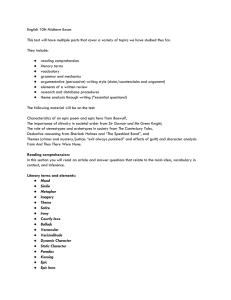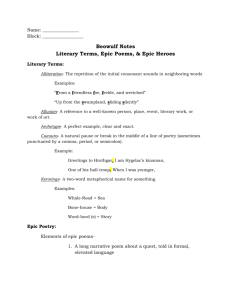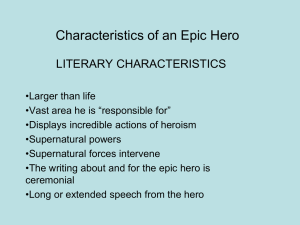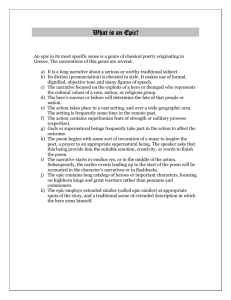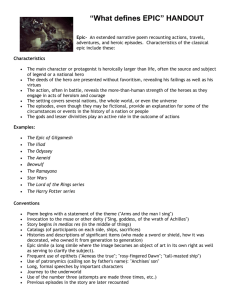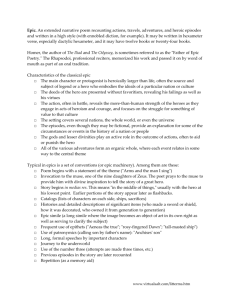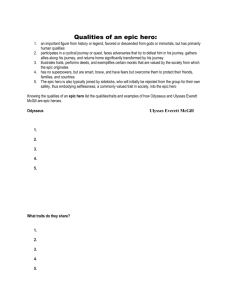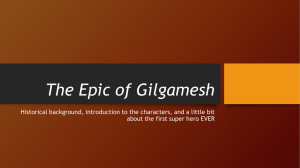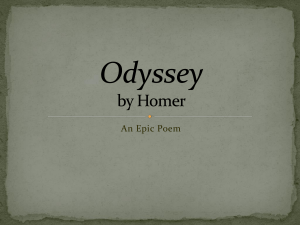Anglo-Saxon Poetry: Epic Characteristics & Literary Devices
advertisement
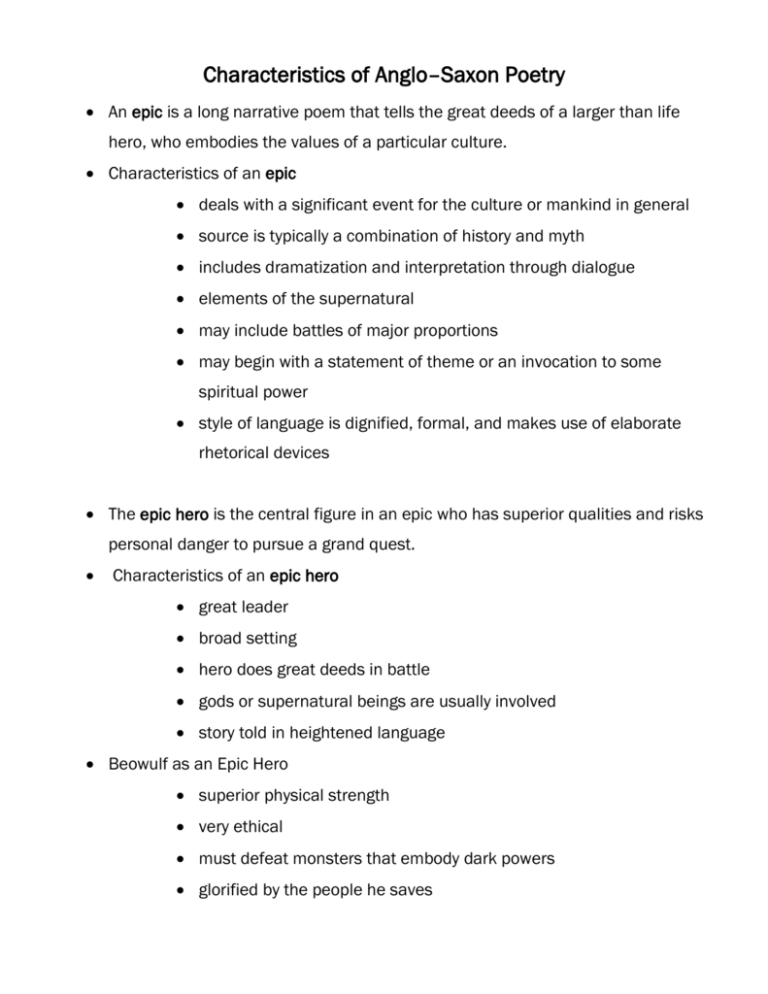
Characteristics of Anglo–Saxon Poetry An epic is a long narrative poem that tells the great deeds of a larger than life hero, who embodies the values of a particular culture. Characteristics of an epic deals with a significant event for the culture or mankind in general source is typically a combination of history and myth includes dramatization and interpretation through dialogue elements of the supernatural may include battles of major proportions may begin with a statement of theme or an invocation to some spiritual power style of language is dignified, formal, and makes use of elaborate rhetorical devices The epic hero is the central figure in an epic who has superior qualities and risks personal danger to pursue a grand quest. Characteristics of an epic hero great leader broad setting hero does great deeds in battle gods or supernatural beings are usually involved story told in heightened language Beowulf as an Epic Hero superior physical strength very ethical must defeat monsters that embody dark powers glorified by the people he saves Several literary devices were used to help scops memorize these tales o Alliteration is the repetition of consonant sounds in words that are close together in a poem or the repetition of consonant sounds that are similar. “So Hrothgar’s men lived happy in his hall.” o Compounding occurs when two words are merged to create a new word doghouse, barefoot, backstabbing foerhseoc – “life-sick” or mortally wounded o Kennings are special kinds of metaphors that use compound words, prepositional phrases, or possessives to name a person, place, thing, or event indirectly. banhus – “bone-house” or the human body (compounding) “candle of heaven” – the sun (prepositional phrase) “whale’s road” – the ocean (possessive) o A Caesura is a strong pause in a line of verse, like a rest functions in music. It usually separates the line in two in Anglo-Saxon verse. o Rhythm is the accented syllables or beats in a line
